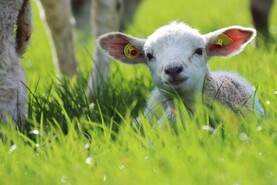The supply of sexed semen to the dairy sector will more than double this year and is expected to exceed 250,000 straws.
With two labs in the country now producing sexed semen – one located at Teagasc Moorepark and the other at the National Cattle Breeding Centre lab in Naas – supplies of straws will not be an issue for dairy farmers.
Stephen Butler of Teagasc said the challenge now for the industry is to increase the usage of sexed semen by dairy farmers.
While Butler accepted that there were concerns in the past that sexed semen was not available from the best sires, he said this was no longer the case.
“The use of sexed semen to generate replacement heifers is now a viable option in dairy herds with good reproductive performance,” Butler maintained.
He said using sexed semen accelerated genetic gain by enabling farmers to select the best EBI dams to breed replacements.
Since male dairy calves with poor beef merit have little or no economic value, greater usage of sexed semen was inevitable in the dairy sector, according to Butler.
Outlets for purebred dairy bull calves are likely to become increasingly restricted, since the slaughter of calves will be prohibited from 2024, while shipping calves to continental markets is already subject to greater scrutiny.
The hike in demand for sexed semen is already being felt on the ground.
“Two of our top sexed bulls have sold out already, and pressure is coming on sexed stock,” said Tom Baker of Eurogene.
Meanwhile, Bernard Eivers of NCBC said the feedback from farmers regarding sexed semen is extremely positive this year.
“We expect to see a doubling of demand this breeding season compared to 2022,” Eivers said.






 This is a subscriber-only article
This is a subscriber-only article










SHARING OPTIONS: